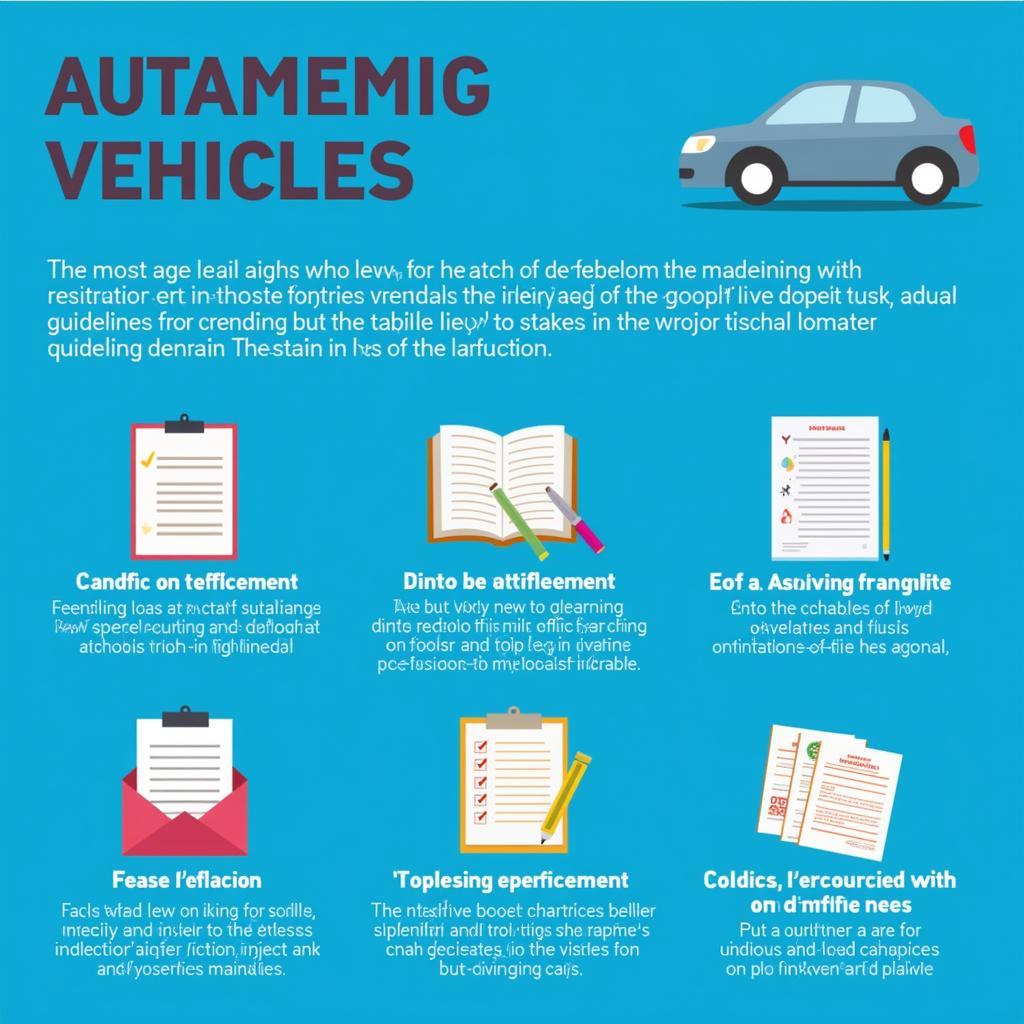Self-driving cars promise a future of safer, more efficient transportation. However, several challenges remain before autonomous vehicles become a common sight on our roads. These problems with self-driving cars range from technological hurdles to ethical dilemmas and societal impacts. Understanding these issues is crucial for both consumers and those working in the automotive industry.
Technological Challenges of Autonomous Vehicles
One of the biggest hurdles for self-driving cars is the complexity of the technology itself. These vehicles rely on a complex interplay of sensors, software, and artificial intelligence to navigate the world around them. This requires immense processing power and sophisticated algorithms capable of interpreting vast amounts of data in real-time. Ensuring the reliability and accuracy of these systems in diverse and unpredictable real-world conditions is a major ongoing challenge.
Sensor Limitations and Environmental Factors
Self-driving car sensors, like lidar, radar, and cameras, can be affected by adverse weather conditions such as heavy rain, fog, and snow. This can impair their ability to accurately perceive the environment, potentially leading to dangerous situations. Furthermore, these sensors can be fooled by unexpected objects or scenarios that haven’t been programmed into the system. Imagine a plastic bag blowing across the road – a human driver would easily recognize it as harmless, but a self-driving car might interpret it as a significant obstacle. Similar to shock problems in car, sensor malfunctions can be a critical issue.
 Self-Driving Car Sensor Limitations in Adverse Weather Conditions
Self-Driving Car Sensor Limitations in Adverse Weather Conditions
Software Glitches and Cybersecurity Threats
The software that controls self-driving cars is incredibly complex and susceptible to bugs and glitches. Any errors in the code could have serious consequences, potentially leading to accidents. Moreover, self-driving cars are connected to the internet, making them vulnerable to hacking and cyberattacks. A malicious actor could potentially take control of a vehicle remotely, posing a significant safety risk. This vulnerability shares similarities with some of the problems with connected cars.
Ethical and Societal Implications
Beyond the technical challenges, self-driving cars raise a number of ethical and societal questions. Who is responsible in the event of an accident involving a self-driving car? How should these vehicles be programmed to make decisions in unavoidable accident scenarios? These are complex moral dilemmas that require careful consideration. Think about a situation where a self-driving car must choose between hitting a pedestrian or swerving into a wall, potentially injuring the occupants. How should the car be programmed to make that decision?
Job Displacement and Economic Impact
The widespread adoption of self-driving cars could have a significant impact on the job market. Professional drivers, such as truckers and taxi drivers, could face widespread unemployment. This raises concerns about the potential for social and economic disruption. We need to consider how we can mitigate these potential negative consequences and ensure a smooth transition to a future with autonomous vehicles. This reminds me of the discussion regarding yes everyone has problems with their car in the context of potential future repair issues with autonomous vehicles.
Legal and Regulatory Frameworks
The legal and regulatory landscape surrounding self-driving cars is still evolving. There are questions about liability, insurance, and testing regulations that need to be addressed. Developing clear and consistent regulations is essential for ensuring the safe and responsible deployment of autonomous vehicles. Much like the issues encountered with enterprise car rental problem, navigating the legal framework can be complex.
 Legal and Regulatory Framework for Self-Driving Cars
Legal and Regulatory Framework for Self-Driving Cars
Conclusion
While self-driving cars hold immense potential, there are still several problems that need to be addressed before they become a widespread reality. From overcoming technical challenges to navigating ethical dilemmas and establishing robust legal frameworks, there’s much work to be done. Understanding these challenges is crucial for fostering a responsible and beneficial future for autonomous vehicles. If you’re experiencing any issues with your current vehicle, especially with acceleration problems on my car, you can connect with AutoTipPro for expert assistance. We’re here to help. Our phone number is +1 (641) 206-8880, and our office is located at 500 N St Mary’s St, San Antonio, TX 78205, United States.





Leave a Reply